If you’re considering extending your home, the key to a successful extension lies in choosing the right architect. Your architect will not only shape the design of your extension but also influence the project’s overall success. In this article, we’ll explore essential factors, such as an architect’s experience, design philosophy, qualifications, and licensing.
We’ll also look closer at their project management skills, communication, and how they coordinate with other professionals involved in your project. We’ll discuss the significance of local knowledge and connections, emphasising the importance of an architect who has established relationships with local suppliers and contractors.
You’ll also learn about creating a clear project brief, receiving regular updates, and ensuring a smoother project experience. By the end of this article, you’ll be equipped with the knowledge needed to make an informed decision when choosing an architect. We understand this is an investment in your home’s future, and we’re here to ensure you make that investment wisely.
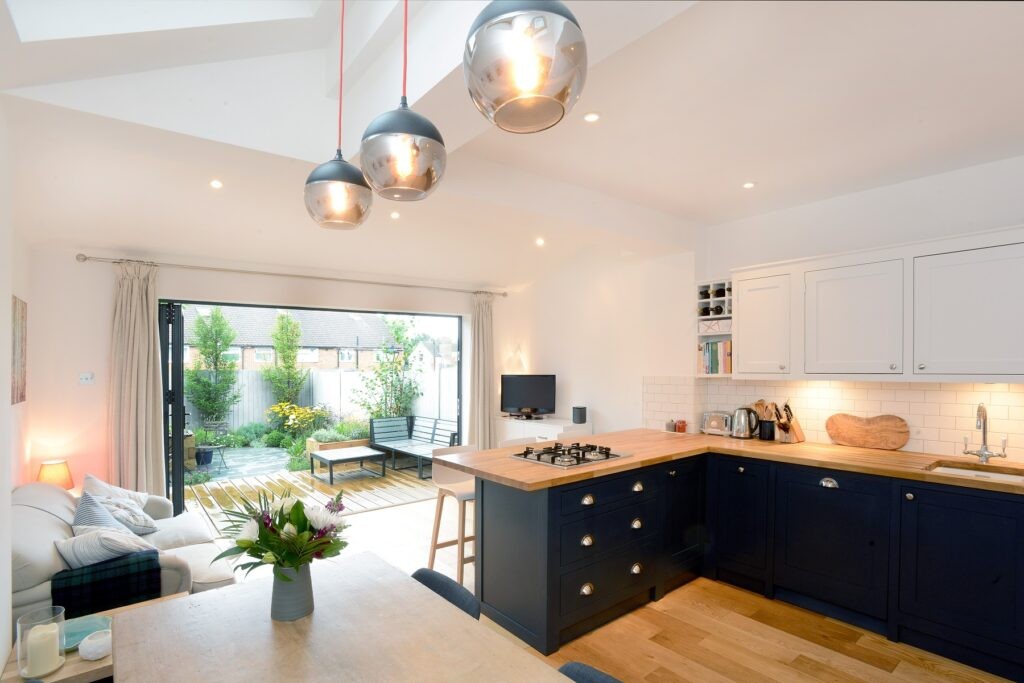
Experience and Expertise
Portfolio Review: When assessing an architect’s portfolio, look for projects that align with the scale and style of your extension. This step allows you to gauge their capability to deliver similar projects successfully. For instance, if you’re planning a modern, energy-efficient extension, you’d want to see evidence of similar designs in their portfolio.
Specialisation: Architects specialising in residential extensions bring a wealth of experience in dealing with these projects’ unique challenges. They understand how to integrate new spaces with existing structures, ensuring a seamless blend of old and new. Their expertise can lead to more efficient and cost-effective solutions.
References: Speaking with past clients can provide valuable insights into an architect’s work ethic, communication skills, and overall performance. Ask for references and enquire about their experiences, including how well the architect addressed their specific needs and concerns. Positive references are a strong indicator of the architect’s reliability.
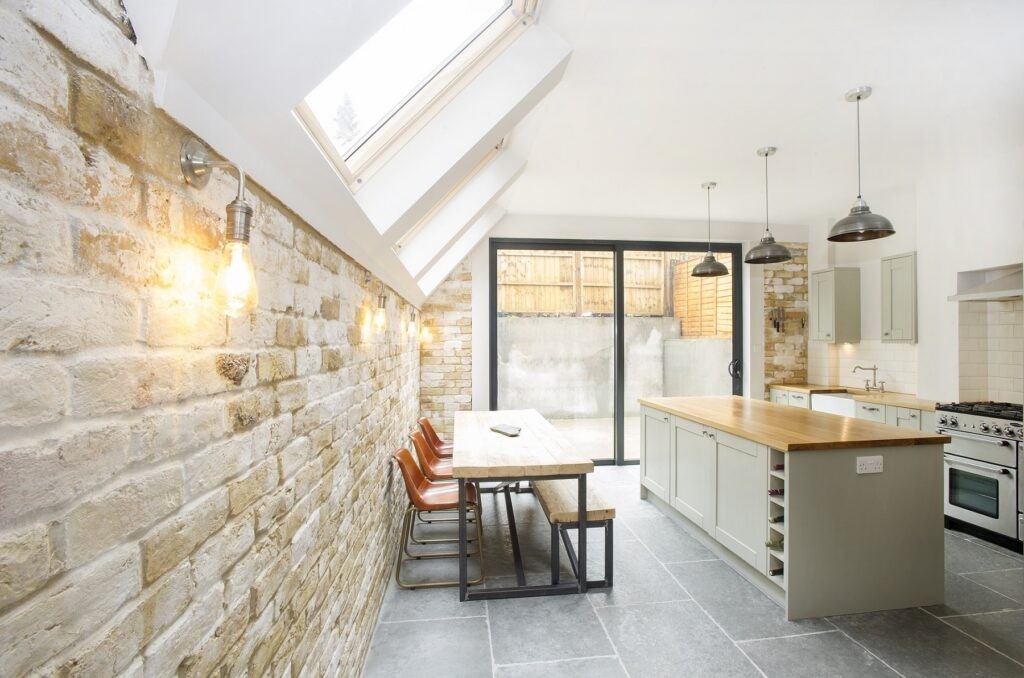
Design Philosophy and Compatibility
Architectural Style: Architectural styles can vary significantly, from contemporary to traditional and everything in between. Selecting an architect whose design sensibilities align with your vision is crucial. Compatibility in style ensures the final design reflects your tastes and integrates with your existing home.
Collaboration: Effective collaboration is paramount to a successful project. During your initial meetings, observe how well the architect listens to your ideas, questions, and concerns. A willingness to engage in a constructive dialogue and incorporate your feedback is a sign of a collaborative approach, which can result in a more satisfying end result.
Innovative Thinking: Innovative architects can offer creative solutions to design challenges, making your extension unique and functional. They should demonstrate an ability to think outside the box, adapt to evolving trends, and propose innovative design elements that enhance your project.
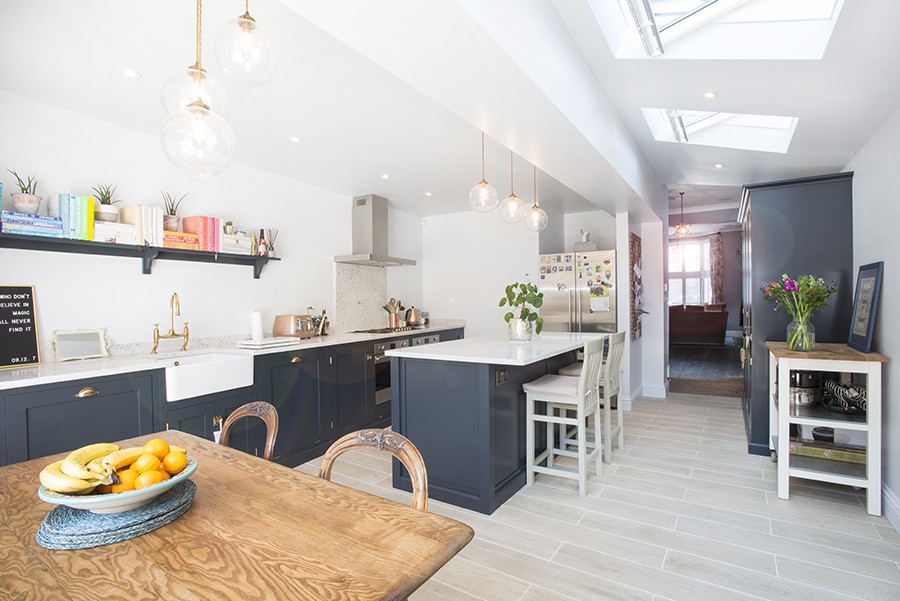
Qualifications and Licensing
Credentials: Verify that the architect holds the necessary licenses and certifications required for your extension project. These credentials demonstrate their commitment to professionalism and adherence to industry standards and codes.
Insurance: Professional liability insurance is crucial to protect both you and the architect in case of errors, omissions, or disputes during the project. Ensure the architect has adequate insurance coverage in place before instructing them.
Continuing Education: Architects should stay informed about industry advancements, building codes, and sustainability practices. Enquire about their commitment to ongoing professional development to ensure they are up to date with the latest trends and technologies.
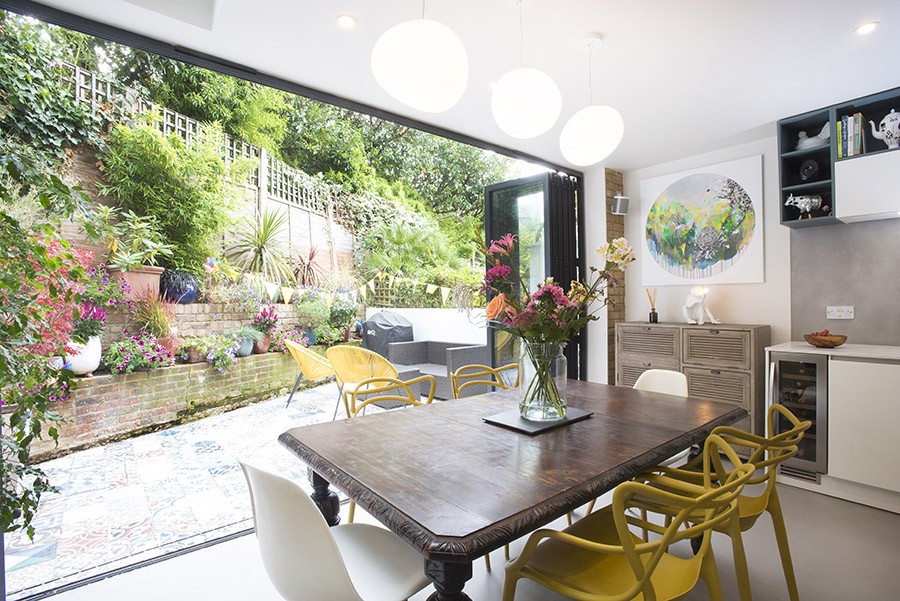
Project Management and Communication
Project Approach: Architects should outline their project management approach, including handling project timelines, milestones, and potential challenges. A well-structured project plan ensures the project progresses smoothly and is completed within the agreed-upon timeframe.
Communication Skills: Effective communication is essential for a project’s success. Assess how the architect communicates with you during the initial meetings. They should be responsive, clear, and transparent, making it easy for you to understand project updates, decisions, and any potential issues that arise.
Coordination: Enquire about the architect’s experience coordinating with contractors, engineers, and other professionals involved in the project. Effective collaboration among all parties helps streamline the construction process and minimise delays.
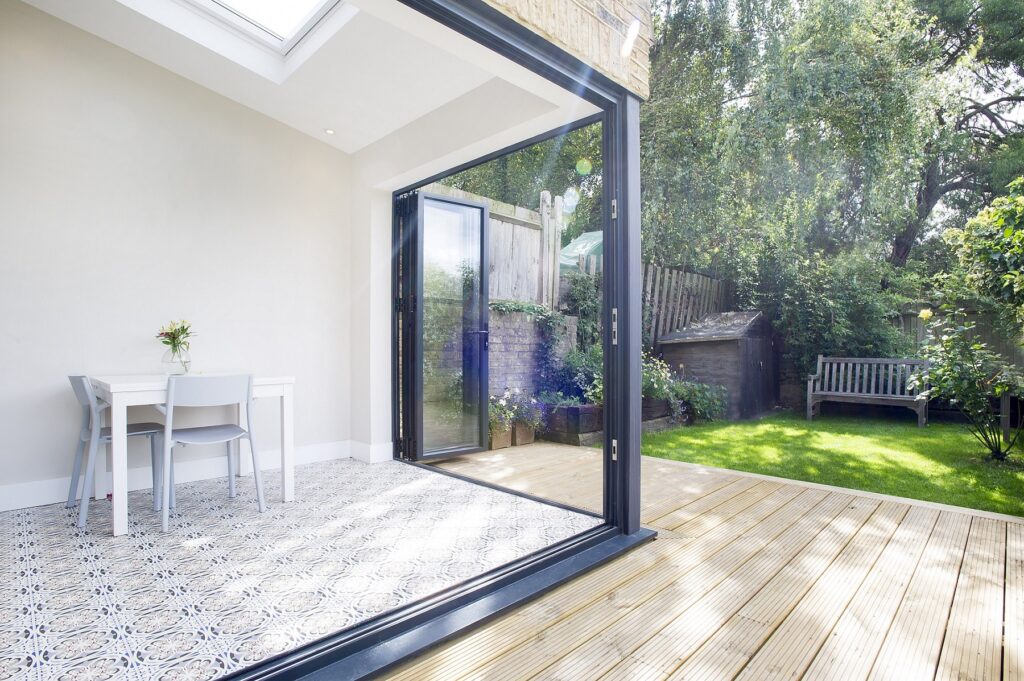
Budget and Fees
Fee Structure: Architects typically charge fees based on a fixed fee, hourly rate, or a percentage of the project cost. Understanding their fee structure is crucial to managing your project budget effectively. Choose a fee arrangement that aligns with your financial preferences and the complexity of your extension.
Cost Control: Architects should have a strategy in place for cost control, including methods for managing changes or unforeseen issues that may arise during the project. Discuss their approach to preventing cost overruns and ensuring the project stays within budget.
Value for Money: While cost is important, consider the architect’s ability to balance cost considerations with delivering a high-quality design that meets your goals. An architect who can provide value for money offers a good balance between design excellence and budget consciousness.
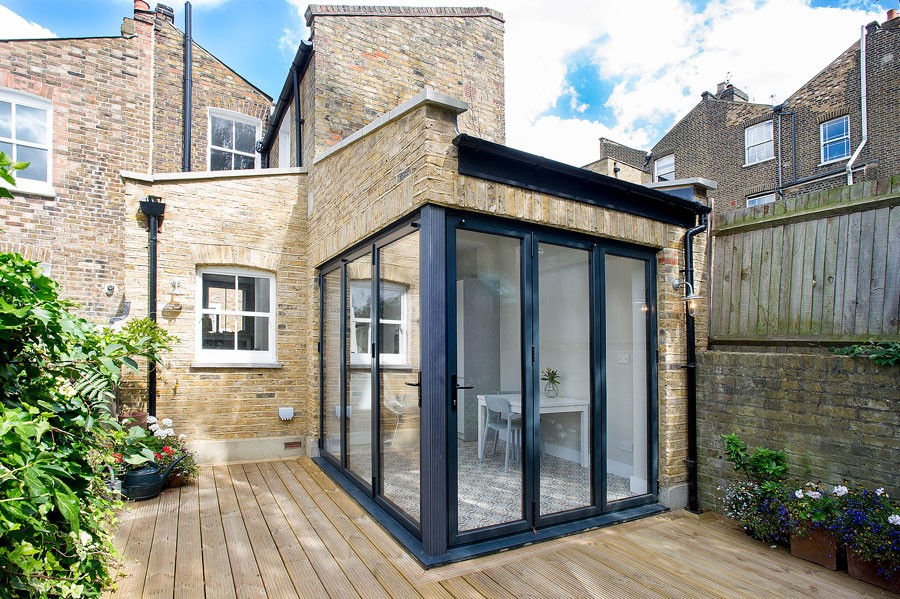
Local Knowledge and Connections
Understanding Local Regulations: Local building codes and permit requirements can vary significantly from one area to another. An architect with a strong understanding of local regulations can help streamline the process and avoid costly delays or redesigns. They should be well-versed in the specific requirements of your area.
Local Material Sources: Architects who have worked extensively in your region often have established relationships with local suppliers and contractors. This can lead to cost savings and a smoother construction process, as they can efficiently recommend trusted professionals and source materials.
Community Integration: An architect familiar with your community’s architectural character can ensure your extension blends with the neighbourhood. They can design in a way that respects the local aesthetic while enhancing your property’s value.
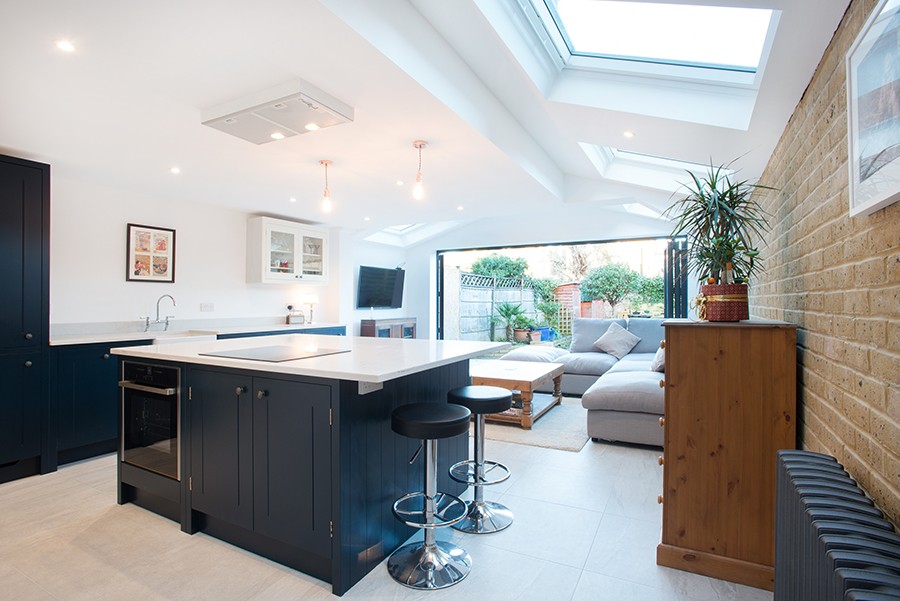
Communication and Transparency
Clear Project Brief: Effective architects prioritise understanding your vision and goals for the extension. They should ask detailed questions, actively listen, and document their preferences to create a clear project brief that guides the design process.
Regular Updates: Architects should establish a communication plan that includes regular project updates, meetings, and progress reports. This transparency ensures you’re informed about project milestones, timelines, and any potential issues as they arise.
Accessibility: Accessibility and responsiveness are key. Choose an architect who is accessible for discussions and questions, making it easy to address concerns promptly. Effective communication fosters trust and a smoother project experience.

Sustainability and Energy Efficiency
Green Building Practices: Sustainable and eco-friendly design is becoming increasingly important. An architect with expertise in green building practices can help you minimise the environmental impact of your extension while potentially reducing long-term operating costs.
Energy Efficiency: Look for architects who prioritise energy-efficient designs, including insulation, efficient HVAC systems, and integrating renewable energy sources. An architect with knowledge of sustainable technologies can help you create an environmentally responsible home.
Materials Selection: Architects who understand sustainable materials and construction methods can guide you in selecting eco-friendly materials. Ones that are both durable and environmentally conscious.
















